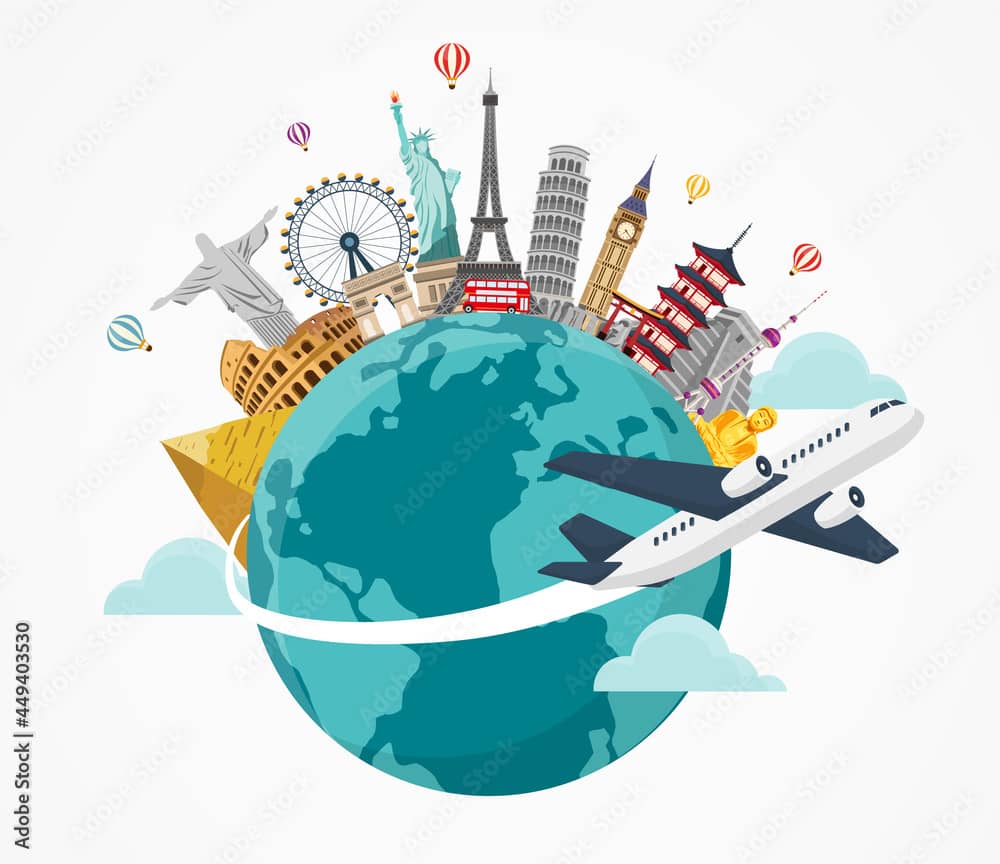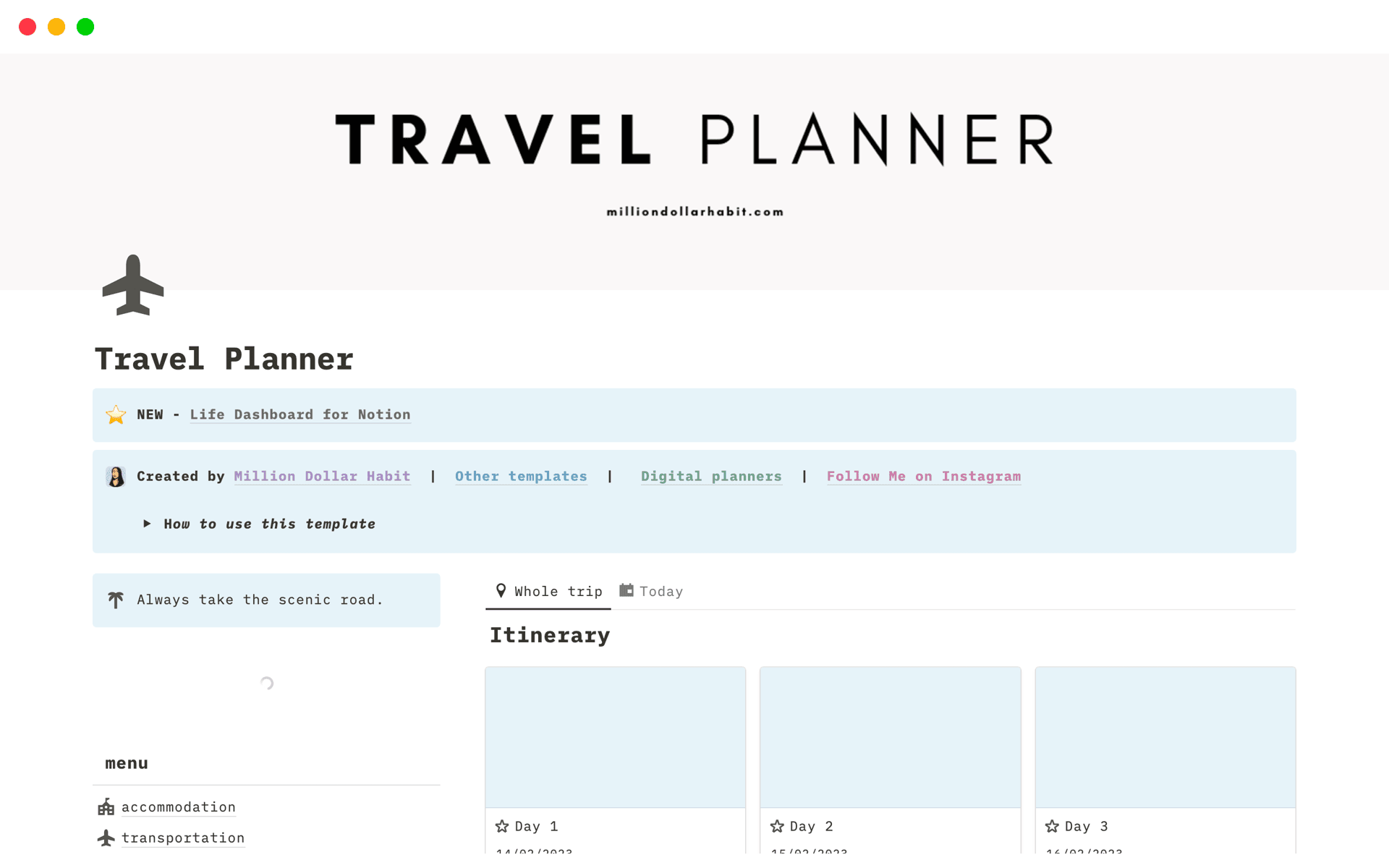Key Takeaways
- Remote travel planners can earn between $34,500 and $95,500 annually, depending on experience and clientele.
- Key responsibilities include booking travel arrangements, providing travel advice, and managing client itineraries.
- Essential skills include excellent communication, organizational skills, and proficiency in travel booking software.
- Remote travel planners enjoy flexibility, allowing them to balance work and personal life effectively.
- Building a strong client base and staying updated with travel trends are crucial for success in this field.

“Vektor best Stok Travel Around” from www.pattysmexicankitchen.com and used with no modifications.
Overview of Remote Travel Planning
Imagine planning dream vacations for clients while sipping coffee in your living room. That’s the life of a remote travel planner. With the rise of remote work, many people are exploring opportunities to earn money from home, and remote travel planning is one of those lucrative paths. It’s not just about booking flights and hotels; it’s about crafting unforgettable experiences for clients.
As a remote travel planner, you have the freedom to work from anywhere with an internet connection. This flexibility is one of the biggest draws of the profession. You can work from home, a coffee shop, or even while traveling yourself. The key is to have a reliable internet connection and a passion for helping others explore the world.
Core Responsibilities of a Remote Travel Planner
While the job offers flexibility, it also comes with specific responsibilities. As a remote travel planner, your main tasks include booking flights, accommodations, and transportation for clients. But it doesn’t stop there. You also need to provide advice on destinations, activities, and travel insurance.
One of the most important aspects of this role is managing client itineraries. This means coordinating all aspects of a trip to ensure a seamless experience. It’s your job to make sure clients have all the information they need before they embark on their journey. This includes everything from hotel check-in times to local emergency contacts.
Essential Skills and Qualifications
To excel as a remote travel planner, you need a specific set of skills and qualifications. First and foremost, excellent communication skills are essential. You’ll be interacting with clients, suppliers, and other stakeholders regularly. Clear and concise communication ensures that everyone is on the same page. For those looking to expand their skill set, consider exploring proven methods to earn money from home without investment.
Organizational skills are also crucial. Managing multiple client itineraries and bookings requires attention to detail and the ability to multitask. Additionally, proficiency in travel booking software and platforms is a must. This includes knowledge of global distribution systems (GDS) like Amadeus or Sabre.
While a formal degree is not always required, having a background in travel, hospitality, or customer service can be beneficial. Certifications such as the Travel and Tourism Professional (TTP) or Certified Travel Associate (CTA) can also enhance your credibility in the field.

“Travel Planner Template by Neda …” from www.notion.com and used with no modifications.
Benefits of Being a Remote Travel Planner
Being a remote travel planner offers numerous benefits that go beyond financial gains. One of the most significant advantages is the ability to work from anywhere. This flexibility allows you to create a work environment that suits your lifestyle and preferences.
Besides the flexibility, remote travel planners often enjoy a better work-life balance. You can set your own schedule and work at your own pace, which is a huge perk for those looking to escape the traditional 9-to-5 grind. This autonomy is empowering and can lead to increased job satisfaction.
- Freedom to work from anywhere
- Ability to set your own schedule
- Opportunity to explore new destinations yourself
- Potential to build a loyal client base
- Chance to make a positive impact on clients’ travel experiences
Flexibility and Work-Life Balance
One of the standout features of being a remote travel planner is the flexibility it offers. You can choose when and where you work, allowing you to balance your professional and personal life effectively. This flexibility is particularly appealing to those with family commitments or other personal responsibilities.
Potential Income and Growth Opportunities
The income potential for remote travel planners varies widely based on experience, client base, and the complexity of the trips you plan. Entry-level planners might start around $34,500 annually, but with experience and a solid client base, earnings can exceed $95,500. The key to increasing your income lies in building a reputation for excellent service and expanding your network. For more details on potential earnings, explore $54k-$160k Remote Travel Planner Jobs.
Growth opportunities in this field are plentiful. As you gain experience, you can specialize in niche markets, such as luxury travel, adventure tourism, or destination weddings. These niches often come with higher commissions and the chance to work with more affluent clients.
Steps to Becoming a Remote Travel Planner
Embarking on a career as a remote travel planner is an exciting journey that requires a blend of skills, knowledge, and the right mindset. While the path may vary for each individual, there are some universal steps that can help guide you towards success in this field. If you’re looking to earn money from home, this career path offers a flexible and rewarding opportunity.
First, it’s essential to understand the core responsibilities and expectations of a remote travel planner. This role involves more than just booking flights; it’s about crafting unique travel experiences tailored to each client’s preferences and needs. With this understanding, you can begin to build the foundation for a rewarding career.
Acquiring Necessary Training and Certifications
While formal education isn’t always mandatory, acquiring relevant training and certifications can significantly boost your credibility and expertise. Consider enrolling in travel and tourism courses that cover essential topics such as geography, travel regulations, and customer service. These courses are often available online, allowing you to learn at your own pace.
Certifications like the Travel and Tourism Professional (TTP) or Certified Travel Associate (CTA) are highly regarded in the industry. These credentials demonstrate your commitment to the profession and can enhance your marketability to potential clients and employers. Participating in online focus groups can also provide valuable insights and networking opportunities in the travel industry.
Choosing the Right Tools and Platforms
In the digital age, having the right tools and platforms at your disposal is crucial for success as a remote travel planner. You’ll need access to travel booking software and global distribution systems (GDS) like Amadeus, Sabre, or Travelport. These platforms enable you to book flights, accommodations, and other travel services efficiently.
| Tool/Platform | Purpose | Cost |
|---|---|---|
| Amadeus | Global distribution system for booking travel services | Varies by subscription |
| Sabre | Comprehensive travel booking platform | Varies by subscription |
| Travelport | Travel commerce platform for agencies | Varies by subscription |
Additionally, consider using customer relationship management (CRM) software to manage client interactions and build lasting relationships. Platforms like Salesforce or HubSpot can help you keep track of client preferences and ensure personalized service.
Besides technical tools, having a strong online presence is essential. Create a professional website or blog where you can showcase your expertise, share travel tips, and attract potential clients. Social media platforms like Instagram and Facebook are also valuable for connecting with a broader audience.
Building a Client Base
One of the most challenging yet rewarding aspects of being a remote travel planner is building a loyal client base. Start by leveraging your existing network; friends, family, and acquaintances can be your first clients. Word-of-mouth referrals are powerful, so provide exceptional service to encourage recommendations.
Consider joining travel-related forums and groups online to connect with potential clients. Offering free travel consultations or organizing webinars can showcase your expertise and attract new clients. Always strive to exceed client expectations, as satisfied customers are more likely to return and refer others to your services.
“Useful Tips For The First Time …” from www.travelandleisureasia.com and used with no modifications.
Tips for Success in Remote Travel Planning
Success in remote travel planning hinges on more than just technical skills. It requires a strategic approach to time management, communication, and staying informed about industry trends. Here are some actionable tips to help you thrive in this profession.
Effective Time Management
As a remote worker, managing your time efficiently is crucial. Set a schedule that aligns with your peak productivity hours and stick to it. Use tools like Google Calendar or Trello to organize tasks and deadlines. Prioritize tasks based on urgency and importance to ensure you’re always on top of your workload. For more insights, explore proven methods to earn money from home.
Enhancing Communication Skills
Strong communication skills are vital for building rapport with clients and suppliers. Whether through email, phone, or video calls, clear and concise communication ensures smooth interactions. Practice active listening to understand client needs fully and respond thoughtfully. For those seeking opportunities to utilize these skills, explore remote travel planner jobs that allow you to work from home.
- Always confirm details in writing to avoid misunderstandings.
- Use positive language to create a friendly and professional tone.
- Be responsive and timely in your communications.
Remember, the way you communicate reflects your professionalism and can significantly impact client satisfaction.
Staying Updated with Travel Trends
The travel industry is constantly evolving, with new trends emerging regularly. Staying informed about these changes is essential for providing relevant and up-to-date advice to clients. Subscribe to industry newsletters, attend webinars, and follow reputable travel blogs to keep your knowledge current.
By staying ahead of trends, you can offer innovative solutions and unique experiences that set you apart from competitors. This proactive approach not only enhances your expertise but also builds trust with your clients. For those interested in exploring career opportunities, consider looking into remote travel planner jobs to apply your skills in a flexible work environment.
Final Insights on Remote Travel Planning
Embarking on a career as a remote travel planner offers a unique blend of freedom, creativity, and financial opportunity. This profession allows you to work from anywhere, providing the flexibility to design your ideal lifestyle. However, success in this field requires dedication, continuous learning, and a genuine passion for travel.
By mastering the art of communication, honing your organizational skills, and staying informed about industry trends, you can build a thriving travel planning business. Remember, the key to success lies in delivering exceptional service and creating unforgettable experiences for your clients. This approach not only enhances your reputation but also leads to repeat business and referrals.
Frequently Asked Questions
As you consider a career in remote travel planning, you may have several questions about getting started and what to expect. Here are some common inquiries that can help guide your journey.
What qualifications do I need to start?
While formal education is not always required, having a background in travel, hospitality, or customer service can be beneficial. Certifications such as the Travel and Tourism Professional (TTP) or Certified Travel Associate (CTA) can enhance your credibility and demonstrate your commitment to the profession.
How much can I earn as a remote travel planner?
Income potential varies widely, with entry-level planners earning around $34,500 annually. With experience and a strong client base, earnings can exceed $95,500. Building a reputation for excellent service and specializing in niche markets can significantly increase your income.
What tools are essential for remote travel planning?
Key tools include travel booking software and global distribution systems (GDS) like Amadeus, Sabre, or Travelport. Additionally, customer relationship management (CRM) software, such as Salesforce or HubSpot, is crucial for managing client interactions and building relationships.
Is it necessary to have travel industry experience?
While not mandatory, having experience in the travel industry can be advantageous. It provides a deeper understanding of the complexities involved in travel planning and helps build credibility with clients. However, with the right training and dedication, newcomers can also succeed in this field. For those interested in exploring opportunities, consider checking out remote travel planner jobs available online.
How can I attract more clients to my travel planning business?
Building a strong client base requires a combination of networking, marketing, and delivering exceptional service. Leverage your existing network, join travel-related forums, and offer free consultations to showcase your expertise. Providing personalized service and exceeding client expectations will lead to referrals and repeat business.
Ultimately, the journey to becoming a successful remote travel planner is a rewarding one. By focusing on continuous improvement and client satisfaction, you can create a fulfilling career that offers both financial freedom and personal satisfaction.
